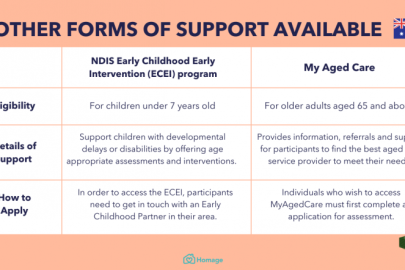The National Disability Insurance Scheme (NDIS) and Mental Health
Introduction
The National Disability Insurance Scheme (NDIS) in Australia is designed to provide support and services to individuals with disabilities, including those with mental health conditions. Understanding the eligibility criteria for mental health under the NDIS is crucial for individuals seeking assistance. This article will delve into the mental illnesses that qualify for NDIS support, providing valuable insights for those navigating the system. What mental illness qualifies for NDIS?
What Mental Illnesses Qualify for NDIS?
1. Severe Mental Health Conditions
To qualify for NDIS support, an individual’s mental health condition must be severe and persistent. Conditions such as schizophrenia, bipolar disorder, and major depressive disorder are often considered eligible. The severity of the condition should significantly impact the person’s ability to carry out everyday activities, participate in social interactions, or maintain employment.

2. Psychosocial Disability
Psychosocial disability refers to impairments related to mental health that hinder a person’s ability to engage in day-to-day activities. It may include difficulties in maintaining relationships, securing employment, or participating in community activities. Individuals experiencing psychosocial disability may be eligible for NDIS support to enhance their overall well-being and functioning.
3. Co-occurring Conditions
The NDIS recognizes that many individuals may experience mental health conditions alongside other disabilities. In such cases, the combination of conditions can significantly impact an individual’s ability to lead a fulfilling life. If a person has a mental health condition alongside a physical disability or intellectual impairment, they may be eligible for NDIS support to address the complexities of their situation.
The NDIS Assessment Process
1. Functional Impact
To determine eligibility, the NDIS assesses the functional impact of a mental health condition on an individual’s daily life. This assessment considers how the condition affects various domains such as communication, mobility, social interactions, and self-care. The more significant the impact, the higher the likelihood of qualifying for NDIS support.
2. Duration of Impairment
Eligibility for NDIS support requires that the mental health condition is likely to persist for a continuous period of at least 12 months. The duration and persistence of the impairment are critical factors considered during the assessment process. It ensures that individuals with ongoing and substantial mental health challenges receive the necessary support.
Steps to Access NDIS Support for Mental Health
1. Seeking Professional Guidance
Before applying for NDIS support, individuals with mental health conditions are encouraged to seek guidance from healthcare professionals. Mental health practitioners, psychologists, or psychiatrists can provide assessments and documentation that strengthen the case for NDIS eligibility.
2. Gathering Relevant Documentation
Documentation supporting the diagnosis, treatment plans, and details of the functional impact of the mental health condition is crucial for the NDIS application. Collecting and organizing this information ensures a smoother assessment process and increases the chances of successful eligibility determination.

3. NDIS Application Submission
Once all necessary documentation is gathered, individuals can submit their application to the NDIS. It is essential to provide comprehensive and accurate information to facilitate a thorough assessment of the mental health condition and its impact on daily life.
Conclusion
Navigating the NDIS system for mental health support requires a clear understanding of eligibility criteria and a strategic approach to the application process. Severe and persistent mental health conditions, psychosocial disabilities, and co-occurring impairments are factors considered when determining eligibility. By following the necessary steps and seeking professional guidance, individuals can access the support and services they need to enhance their well-being and quality of life through the NDIS.




